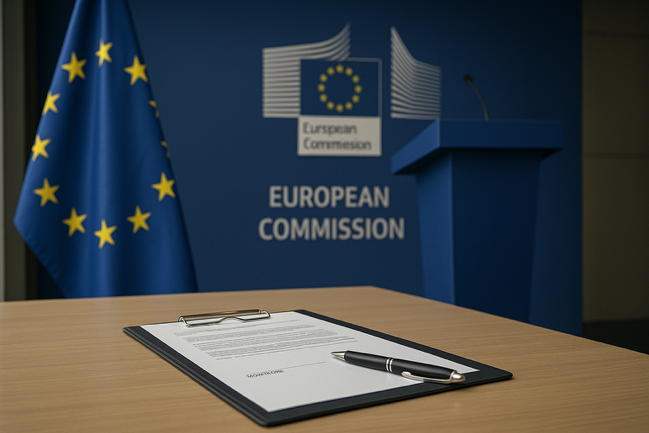The European Commission is considering offering companies a grace period after they sign the voluntary Code of Practice for general-purpose AI (GPAI). This approach eases compliance with the EU’s AI Act, which introduces new regulations for AI tools across the bloc.
What’s Happening & Why This Matters

The Commission’s voluntary Code of Practice is designed to guide AI model providers, such as ChatGPT and Google Gemini, in meeting the requirements of the EU’s AI Act. Initially scheduled for release in May, the Code’s final version is delayed, with July 10 now a potential publication date.
Ahead of the Code’s release, the Commission hosted a workshop to encourage companies to sign the Code and explained its benefits. However, many companies requested additional time to meet the Code’s obligations. The finalised Code is slated for publication just weeks before the AI Act officially takes effect on August 2, 2025.

In a June 27 meeting, Google representatives asked the European Technology Commissioner Henna Virkkunen’s cabinet about possible grace periods for compliance with both the Code and accompanying AI Office guidelines. These requests identify concerns that the timing leaves little room for adjustment.
The Commission appointed 13 experts in September 2024 to draft the Code. The process included plenary sessions and workshops for feedback. The draft has faced criticism from technology giants and rights holders — who worry it may clash with EU copyright laws.
Once adopted, the Commission may formalize the Code through an implementing act. The AI Act, which categorizes AI tools based on their risks, is already being phased in; however, some provisions won’t take effect until 2027.
Offering a grace period acknowledges the challenges companies face in quickly adapting to new rules, supporting smoother transitions while maintaining regulatory goals.

TF Summary: What’s Next
The European Commission’s consideration of a grace period for AI Code signatories reflects an effort to balance swift regulation with practical industry readiness. This approach may facilitate the rollout of the AI Act’s rules while promoting the wider adoption of compliance standards.
Companies and regulators will continue to fine-tune and collaborate on these oversight frameworks. The grace period’s structure and enforcement influence how AI is trusted across the EU.
— Text-to-Speech (TTS) provided by gspeech


